Affiliate marketing without cookies – can you imagine? Tracking affiliate sales accurately without any cookies in the process? Cookieless affiliate tracking? Once again, panic reigns in the world of affiliate marketers and advertisers. Just when we are getting used to the GDPR, Chrome (responsible for 70% of web browsing) will block third-party tracking cookies.
Furthermore, Apple makes tracking on an iPhone optional based on the user’s opt-in. What does it mean for the future of affiliate marketing?
If you are in the affiliate marketing business, you most likely ask yourself, what is going to change in 2024, when cookies are going to be blocked?
The short answer is: nothing, really.
If you are running an affiliate marketing business – either promoting affiliate products or running your own affiliate network – you won’t be affected.
However, the consequences are big: personalization, targeting, and retargeting via advertisements must be done differently.
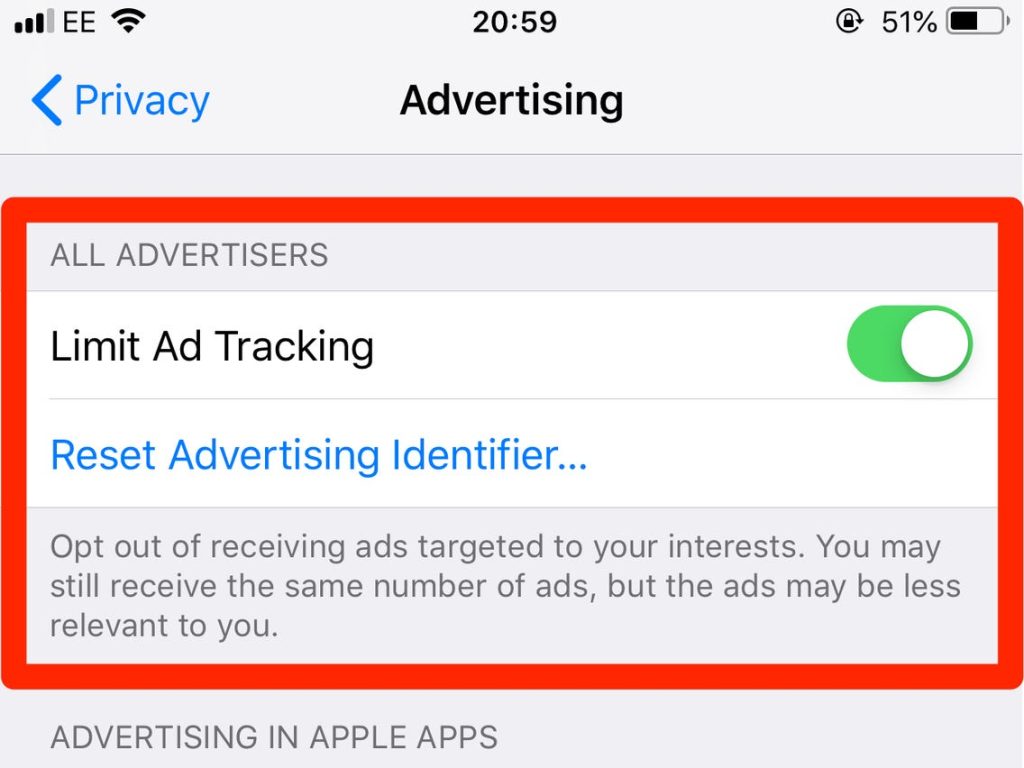
What does the future hold for us regarding cookies, tracking IDs, and online privacy? And, what is the impact on marketers? In today’s blog post, we will discuss it based on 10 questions.
Cookies are files. They are stored on a user’s device by a website he has visited. They come in two types: first-party cookies and third-party cookies.
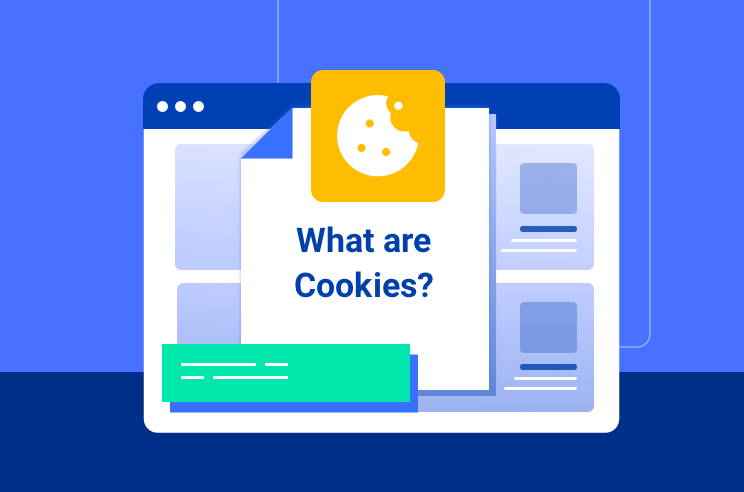
First-party cookies are usually used to make websites function better. Think of a function to stay logged in after closing your browser, viewing a site in dark mode, or a tick to no longer show a specific notification. They are not used for tracking users on the internet and can only be read by the website that has placed them.
First-party cookies are exactly the type of cookies used in affiliate marketing and will not be affected by this recent change.
Third-party cookies can be used to profile and track people. These are not placed by the website itself but are sent along with embedded content. Or, for example, scripts from third-party parties that you have integrated on your site. Think of a HubSpot form or a LinkedIn Pixel.
When an advertisement is clicked, client-side tracking stores information on the actual user’s computer by placing a cookie in the user’s browser. When the user reaches the conversion page (final sale or lead), a tracking pixel is placed on the conversion page. It sends the cookie information back to the tracking platform, recording a conversion for the corresponding affiliate. Iframe and image pixels are the two most common formats for tracking pixels.
These are automatically generated when an offer is created in an affiliate tracking platform such as Scaleo. When implementing customer-based tracking, the advertiser is only responsible for placing this tracking pixel on the conversion page. Therefore, this is often the easiest method to set up conversion tracking. Client-side tracking is an effective solution for many networks. It is easy for advertisers to set up and has few technical requirements.
First-party cookies are placed by the website where the user browses the web and are used to keep track of the operation as they go from page to page.
They allow essential website features such as authentication, shopping cart maintenance, website preferences, or login information. Without first-party cookies, the user would have to log in to each page and would not. For example, be able to put an item in the cart and keep shopping because very few websites retain this data on their own servers.
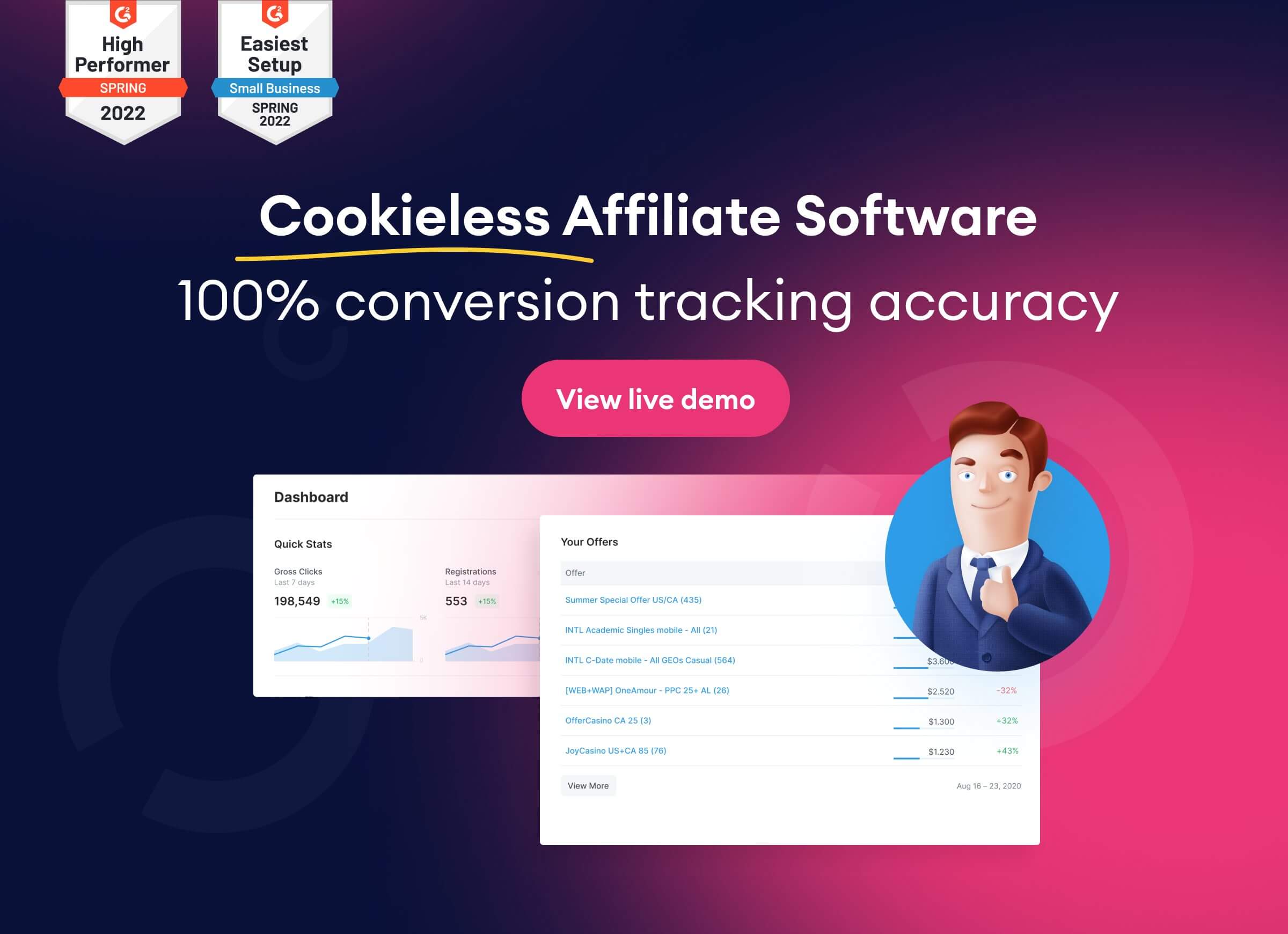
In short, without first-party cookies, the website experience will be bad or even impossible. Since they only monitor the behavior on the site that someone actively visits, they are not usually subject to the rage (and blocking) that third-party cookies get.
Cookie-blocking technologies and government legislation are targeting third-party cookies because they are the ones that monitor user behavior across the network and could pose a privacy concern. They are stored in the browser by tracking pixels or JavaScript code. What bothers online privacy advocates is that third-party cookies do not come from a website the user has been proactively engaging with.
Advertising networks such as Google Adsense and others are typically the source of third-party cookies used to monitor users through various websites and use the information to target them more specifically with ads. There is no implied or formal authorization to do so, so it can easily be seen as an infringement of privacy.
Also, Google Maps, a YouTube video or Facebook-like button, makes it possible for those parties to follow people wherever they go online and where similar services are integrated. This type of cookie has other uses too. These include allowing a chat function to function seamlessly on multiple websites of the same owner or, even better, showing personalized content on Netflix.
As I already mentioned, third-party cookies are increasingly automatically banned due to growing awareness about privacy. This ensures more privacy by default.
The introduction of GDPR has had a significant impact in Europe.
For many U.S. tech giants, enacting the California Consumer Privacy Act in January was a more powerful motivation. Consumers increasingly use adblocker plugins, but browsers such as Firefox and Safari have also been blocking third-party tracking options with cookies for a while now.

Google Chrome has announced that it will start blocking cookies, too, back in 2022. Since Chrome controls 70% of web usage, its measures have a major impact on marketers.
Targeting and retargeting through advertisements and well-known marketing platforms will become more challenging.
Of course, Google gets a lot of revenue from the ads sales. To make them relevant, users are tracked and profiled. However, I can imagine Chrome wanting to prevent what happened to Microsoft Internet Explorer a few years ago when people simply stopped using it. Partly because the browser was ‘leaky.’ Another factor is that Google sees what Safari and Firefox are doing and hears the public’s call for more privacy.
It is unnecessary to place cookies on mobile devices to recognize the user in various apps and measure conversions.
As a user, you automatically receive a unique marketing number (a Tracking ID) from the operating system. At Apple (iOS) and Google (Android), they are called IDFA and AAID, respectively.
So, companies do not have to go out of their way to follow people.
Therefore, banning third-party cookies only affects the “desktop world,” which accounts for about 50% of all online traffic.
But it doesn’t end here.
Apple recently announced it would also limit mobile options for marketers. This will impact about 30% of mobile traffic. In addition, there is now a lawsuit against Google for not being able to disable tracking.
Will tracking and retrieving data become impossible?
Data mining and tracking can also be done without third-party cookies or tracking IDs.
Apart from legal issues, it is also a technical tug of war. These most common techniques are now becoming less efficient, but digital technology always offers the possibility to track users.
People come up with ingenious solutions on how to bypass digital tracking.
GDPR has ensured that almost every site now requests proper approval for tracking. Visitors often click away from the notifications as quickly as possible by pressing the most striking button: “I agree.” This is called ‘default bias’ and will probably be addressed legally later.
Apple and Google are making it more difficult by blocking certain methods. But in the meantime, the following technique is gaining popularity again: fingerprinting.

This involves collecting diverse technical blueprints for a visitor and creating a unique profile for that person. This profile can then be recognized on other sites because, for example, your browser version and screen dimensions probably will not change in the meantime.
This tracking method is also actively resisted by the “privacy warriors”. However, it is a lot more difficult because websites also need the data to function properly.
Using first-party data is becoming more and more important. This means that you keep track of what a user does inside your own platform. This can be done on a so-called Customer Data Platform (CDP).
You (as a website owner) offer the user a suitable experience based on self-collected data.
Looking for affiliate software that offers tracking solutions with or without cookies, including sofisticated cross-platform tracking? Give Scaleo a try, 14 days free – no credit card required.
You can get a lot of value from that, and more and more companies now realize that.
Newspapers, news websites, and online magazines already work more with first-party data because they depend on advertisers. But anyone who wants to be able to offer users a personalized experience, preferably across all channels, will ultimately focus on this.
This is a prerequisite for a good omni-channel marketing strategy.
An alternative to having third parties collect a lot of data (so that you can earn from advertisements) is to offer paid accounts. However, this means that only well-off people can access good content, and that is a shame.
It is a question of finding the right balance between privacy and accessible open internet.
What are the alternatives?
What options are there to give people a seamless and personalized experience across different websites? Customer Identity Access Managers (CIAMs) are an interesting phenomenon: platforms that allow users to create their own profile and use it to log in to various websites or applications.
A CIAM provides both ease of login for users and the ability to collect metadata from those same users.
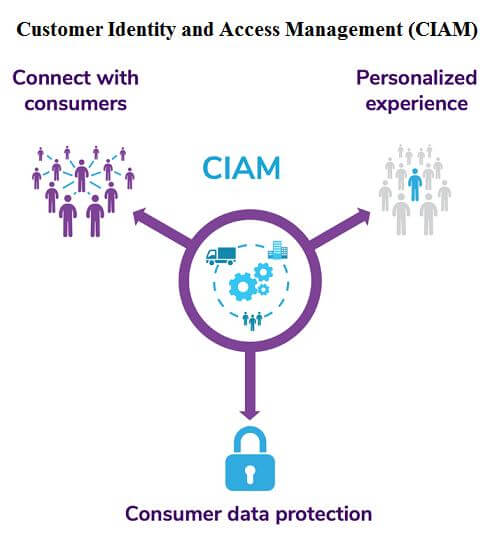
You can relate it to the way you can log in to several websites via your Google or Facebook account.
However, with CIAM, you have much more control over what happens with your data, while you can use it for personalization and marketing automation.
In this case, logging in is a conscious process. You realize that you are not anonymous.
More and more companies will be allowing customers to log in via CIAM platforms in the coming years. At the same time, users are less and less aware that they are logged in somewhere, specifically because it goes so smoothly.
What will affiliate marketing look like in the future?
The affiliate marketer will frequently become a marketing architect. Systems and AI technologies take over various parts of the work. They collect data and automatically adjust and personalize products or pages via advanced algorithms.
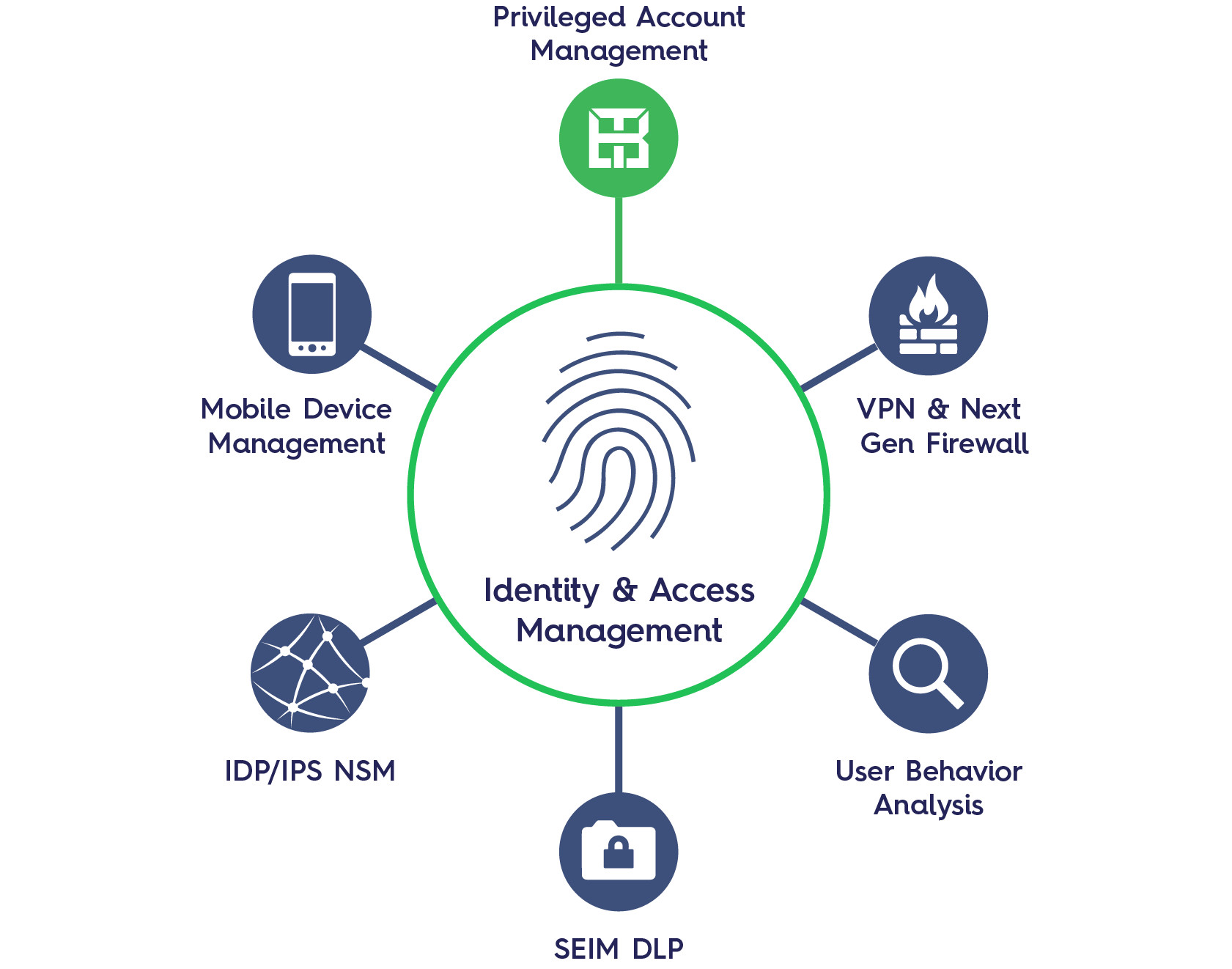
Affiliate marketers will more often have to be mathematically educated to interpret data or adjust models. They must also understand how to link various platforms intelligently and how to do more advanced content management. In the latter case, consider configuring alternative content or landing pages per visitor segment.
Also, government laws are becoming more prominent. In the future, you may not be able to launch a website until an independent party has checked it (just like you cannot build a house unless you get it approved). Who knows?
However, as of now, the affiliate marketing business will not be affected by these cookie changes.
Does the traditional CMS still have a future?
For serious omnichannel marketers, a CMS is not enough. The successor is already here: the Digital Experience Platform (DXP) is the new digital transformation instrument.
In addition to CMS and e-commerce tools, this often includes CDP, marketing automation, A/B testing, and CIAM well integrated. More user data is available on such a platform, and more personalization is possible. It gives users a similar experience across devices and gives administrators one central place to customize applications and communications.
Standard third-party tracking tools will soon stop working efficiently.
That’s good for privacy reasons and transparency. But the retirement of third-party cookies and tracking IDs also means that we will use other ways, such as a DXP with first-party data.
We will not enter an era of privacy and transparency. We will just switch the technology by which the data collection is processed.
The desire to have more privacy seems to make the web less public. You already have to pay for certain news portals, or you give up your privacy voluntarily.
That can reduce the general accessibility of information and make privacy a privilege for wealthier people willing to opt-in for paid content.
Ironically, because we want more privacy, there is actually less privacy in practice: for example, you have to leave your payment details or log in more often.
100% of online privacy is practically impossible. However, there will be more transparency about what happens with your data. In addition, I expect to see less impact from massive companies such as Facebook and Google, because not everything will be shared with them anymore.
All we can say for now is that the backend of affiliate programs will probably change. The technology used to collect users’ data and track affiliate IDs will not be the same a few years from now, but it will still operate seamlessly in the background.
Personalization – Is This The Future of Cookieless Marketing?
Cookieless marketing is here to stay because Google’s recent declaration that it will no longer enable cookie-based tracking in Chrome is the latest acknowledgment by big tech that customers value their privacy. Since then, much of the debate has centered on how to conduct cookie-free advertising.
However, if we want to know what makes a potential consumer tick, we must go beyond inferred behavioral tracking.
We need to develop innovative ways to collect important declared first-party data from consumers, which means consumers are ready to contribute in exchange for better personalized marketing. By the way, the industry has established a new word to distinguish this from first-party data, but for the sake of simplicity, I’ll stick with first-party data because that’s what most of us are familiar with.

Data collected directly from consumers enables businesses to have a greater understanding of their customers, including aspects of their identity such as life stage, social or workgroup affiliations, and vocations.
And, by avoiding online stalking by secretly watching consumers’ clicks and purchasing behavior, you can establish a connection built on transparency and trust from the outset.
There are various methods for collecting and utilizing first-party data. All of them fit under a wide category known as “personalization”—the practice of enticing prospects to furnish you with information about themselves in exchange for highly customized products or services.
We use all those data points and construct an internal algorithm that keeps improving.
Other brands request information about their customers’ jobs or personal ties in order to provide discounts on a product or service. Cheap Caribbean, for example, now offers specific discounts on trip packages to medical professionals. Customers willingly give documentation that they are a doctor, nurse, or another medical professional to qualify for the deal.
Historically, many merchants have been hesitant to ask prospects too many—or too personal—questions for fear of causing unwanted “friction.” When you realize that these questions assist the buyer in getting exactly what they want, the script shifts from invasive friction to an overall fantastic purchase experience.
Furthermore, data collected through personalization attempts can be used to drive future brand loyalty.
There are two main “side-tracking” methods primarily used today when the term “side tracking” is mentioned.
Server Side Tracking
Server-side tracking, also known as server-to-server, S2S, server-side, server-based, and server-call tracking, does not require any software installed on the user’s computer and, therefore, can be considered a 100% cookieless tracking method.
Many believe that server-to-server tracking methods are more accurate because conversions are not lost when users disable cookies in their internet browser. Server-side tracking, unlike cookies, stores information associated with the user, the affiliate, and the offer on a server and links it to a unique identifier.
Transaction IDs and affiliate IDs are the most common unique identifiers generated by the network software. In server-side tracking, the advertiser is responsible for maintaining this unique identifier and sending it back to the tracking server when a user makes a conversion (also known as server postback).
Conclusion
In 2022 and beyond you can run affiliate marketing without cookies. When you collect data openly and honestly, you begin the connection on a foundation of mutual trust and involvement, where both sides feel good about the exchange and gain from it. This is the foundation for long-term connection and loyalty.

With increased consumer privacy regulations, there is little doubt that the business is shifting—and that is a good thing. And, in this new environment, the concept of “invitation” enables both privacy and personalization to coexist.
Affiliate Marketing Without Cookies – FAQ
What are Future Ads?
Future ads are often mistaken for ads that are not based on cookies, simply because of their name and because many places online talk about the future of cookieless advertisement. However, Future Ads is an immersive marketing organization that owns and manages online gaming assets as well as the competitive bidding interface for in-text advertisements.
Is programmatic advertising the future of affiliate marketing?
We have already covered programmatic advertisements in-depth. It’s hard to say, that all future ads will be based on programmatic advertising, which is a form of bidding per ad display. Right now programmatic advertising is a big trend you should focus your marketing efforts on.
Future target ads – what is it?
Future target ads terms can refer either to ads that were scheduled to run at a later date (aka “in the future”), or they can refer to the Future Ads company that PropellAds has now acquired, but since they allow very detailed targeting, sometimes this can be simply referred to Future Ads.
If you delete cookies from an affiliate marketing campaign that was cookie-based, to begin with, you risk losing your commission for that particular campaign. Cookie deletion, therefore, can simply result in the inability of the advertiser to track the commission back to you.
We have already covered marketing automation in our previous post, but the short answer is yes – you can implement a lot of marketing automation features with only 1st party cookies, without 3rd party cookies. If you are looking to do business in the affiliate industry, then you should familiarize yourself with affiliate marketing without cookies techniques, because this is the most
Future tracking in affiliate marketing?
It looks like we are going to value privacy more and more in the future, and therefore in the near future, tracking will be based on other parameters – such as server-side. Tracking in affiliate marketing will remain since sales are tracked using 1st party cookies.
Of course. Tracking without cookies is possible since there are plenty of ways to track affiliate sales. Read more about all types of affiliate tracking in our complete guide.
Affiliate marketing cookie duration varies, depending on the vendor. Some advertisers are happy to offer a very long cookie session duration, such as 365 days, while others, such as Amazon, only offer a 24-hour cookie session, which means that even if the potential buyer follows your affiliate link but makes a purchase 26 hours after clicking / following your referral link – the commissions will not be credited to your account. It’s important to find out about your particular affiliate marketing cookie duration before promoting a certain advertiser, to make sure your efforts are not wasted for nothing.
What is Device ID Marketing?
As the name implies, ID marketing leverages individual device IDs to improve engagement and conversion, which is particularly essential in the affiliate marketing business. A device ID allows companies to better understand an individual’s marketing profile by tracking device usage and adjusting the marketing offers accordingly. It also allows ads to be better targeted to individuals by grouping similar people together, which is a technique widely used by Google Ads.
Yes, nowadays the most popular tracking method is S2S, which is much better and more reliable than the traditional cookies method.
How is affiliates’ performance tracked?
In the older days, affiliate clicks, sales and performances were tracked using cookies, so if someone cleared their cookies, commission wouldn’t count anymore. In 2024, most companies, including Scaleo, making a shift towards cookieless tracking, namely – S2S (server-to-server) tracking methods, which are robust, reliable and secure.
Last Updated on January 2, 2024






